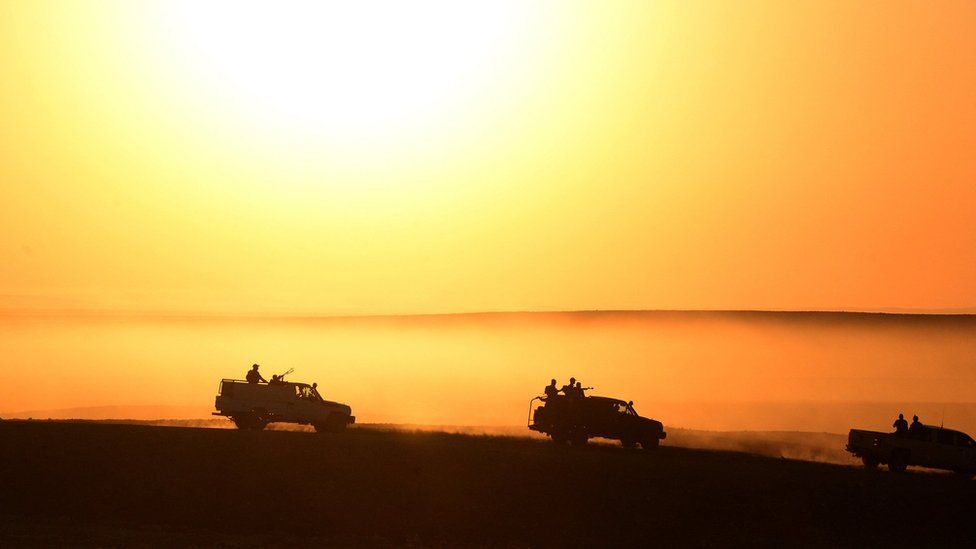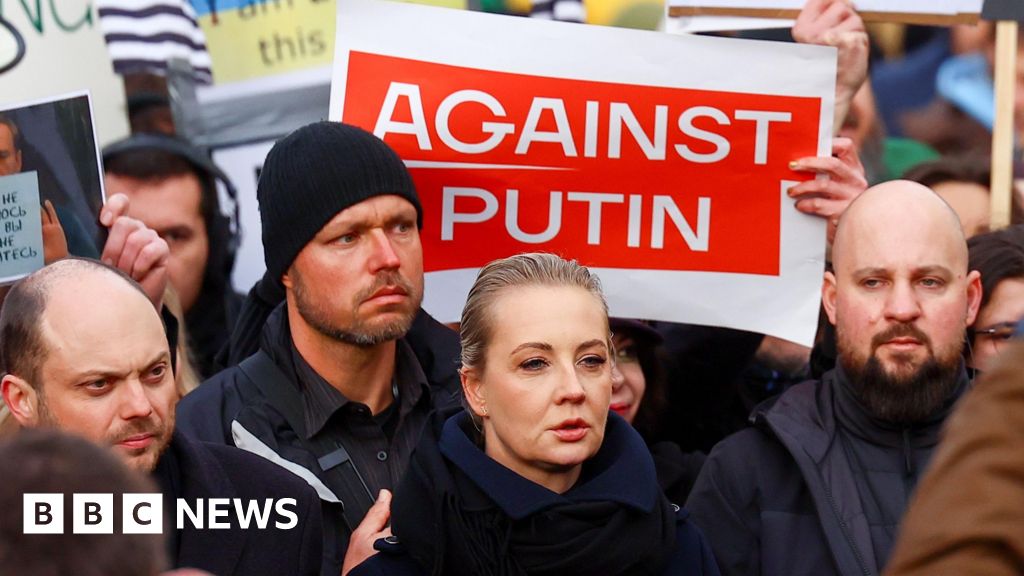ARTICLE AD BOX
 Image source, AFP
Image source, AFP
Iraqi security forces are constantly patrolling their country's western border with Syria for IS remnants
The jihadist group Islamic State (IS) has announced the death of its leader, Abu al-Hassan al-Hashemi al-Qurayshi.
An audio message from the group's spokesman said he was killed while fighting what he called "the enemies of God", but he gave no further details.
The spokesman named his replacement as Abu al-Hussein al-Husseini al-Qurayshi - another apparent nom-de-guerre.
As with the previous announcement, the spokesman refrained from revealing his real name, nationality or background.
He described Abu al-Hussein as "one of the veteran mujahidin" and urged the group's supporters to pledge allegiance to him.
Very little was known about Abu al-Hassan, who never issued any statements in his name as leader. But on Monday, an anti-IS Telegram channel supportive of rival jihadist group al-Qaeda said he had been killed "some time ago".
A spokesman for the US National Security Council, John Kirby, said it was "still working our way through" the news, when asked about it by reporters.
But he added: "We welcome the announcement that another leader of [IS] is no longer walking the face of the Earth."
IS once held 88,000 sq km (34,000 sq miles) of territory stretching from eastern Iraq to western Syria and imposed its brutal rule on almost eight million people.
The group was driven from its last piece of territory in 2019, but the UN warned in July that it remained a persistent threat.
It is estimated to have between 6,000 and 10,000 fighters in Syria and Iraq, who are based mostly in rural areas and continue to carry out hit-and-run attacks, ambushes and roadside bombings.
IS regional affiliates also pose threats in other conflict zones across the world. The UN said the most vigorous and well-established networks were based in Afghanistan, Somalia and the Lake Chad basin.

 1 year ago
43
1 year ago
43








 English (US)
English (US)